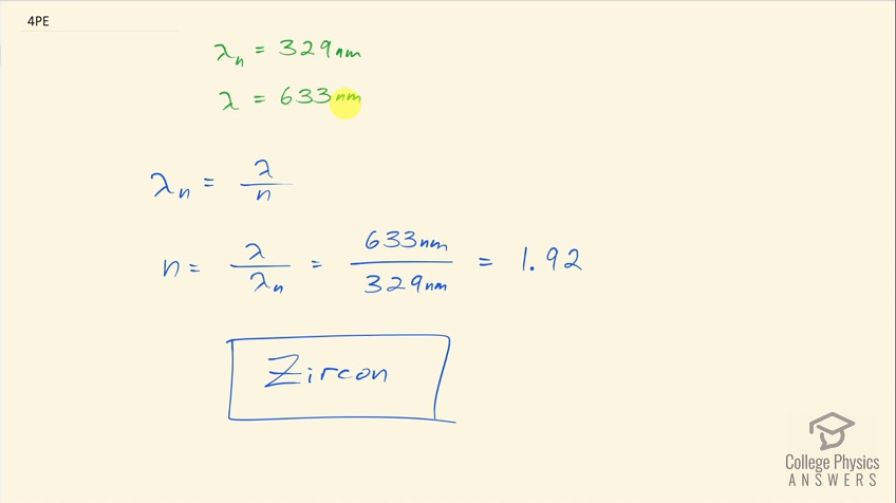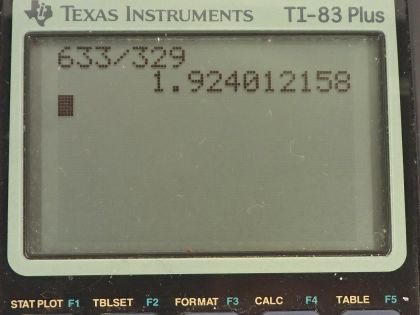Question
Analysis of an interference effect in a clear solid shows that the wavelength of light in the solid is 329 nm. Knowing this light comes from a He-Ne laser and has a wavelength of 633 nm in air, is the substance zircon or diamond?
Final Answer
Zircon
Solution video
OpenStax College Physics for AP® Courses, Chapter 27, Problem 4 (Problems & Exercises)

vote with a rating of
votes with an average rating of
.
Calculator Screenshots
Video Transcript
This is College Physics Answers with Shaun Dychko. A helium-neon laser produces light with a wavelength of 633 nanometers in air or vacuum— air is pretty much the same as vacuum with an index of refraction of about 1.0— and in this material that we don't know what it is—either zircon or diamond— the wavelength is measured to be 329 nanometers. So the wavelength in the material is the wavelength in a vacuum divided by the index of refraction and we can solve for n by multiplying both sides by n over λ n. So the index of refraction of this material is 633 nanometers divided by 329 nanometers, which is 1.92. So to figure out what the substance is, we can look at our table [25.1] and we see that diamond has an index of refraction of 2.4 and zircon has an index of refraction of 1.923 so that means this material is zircon.
